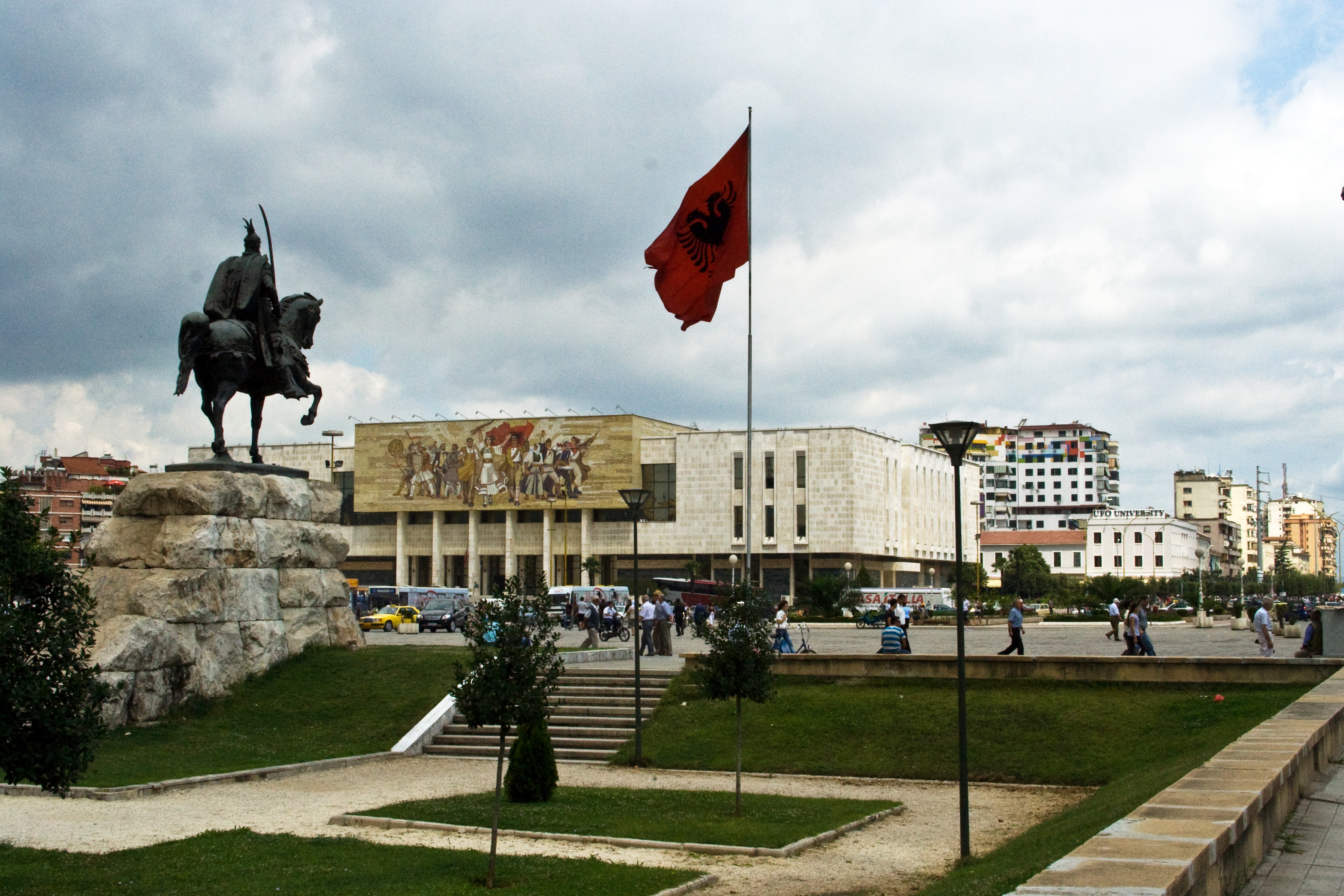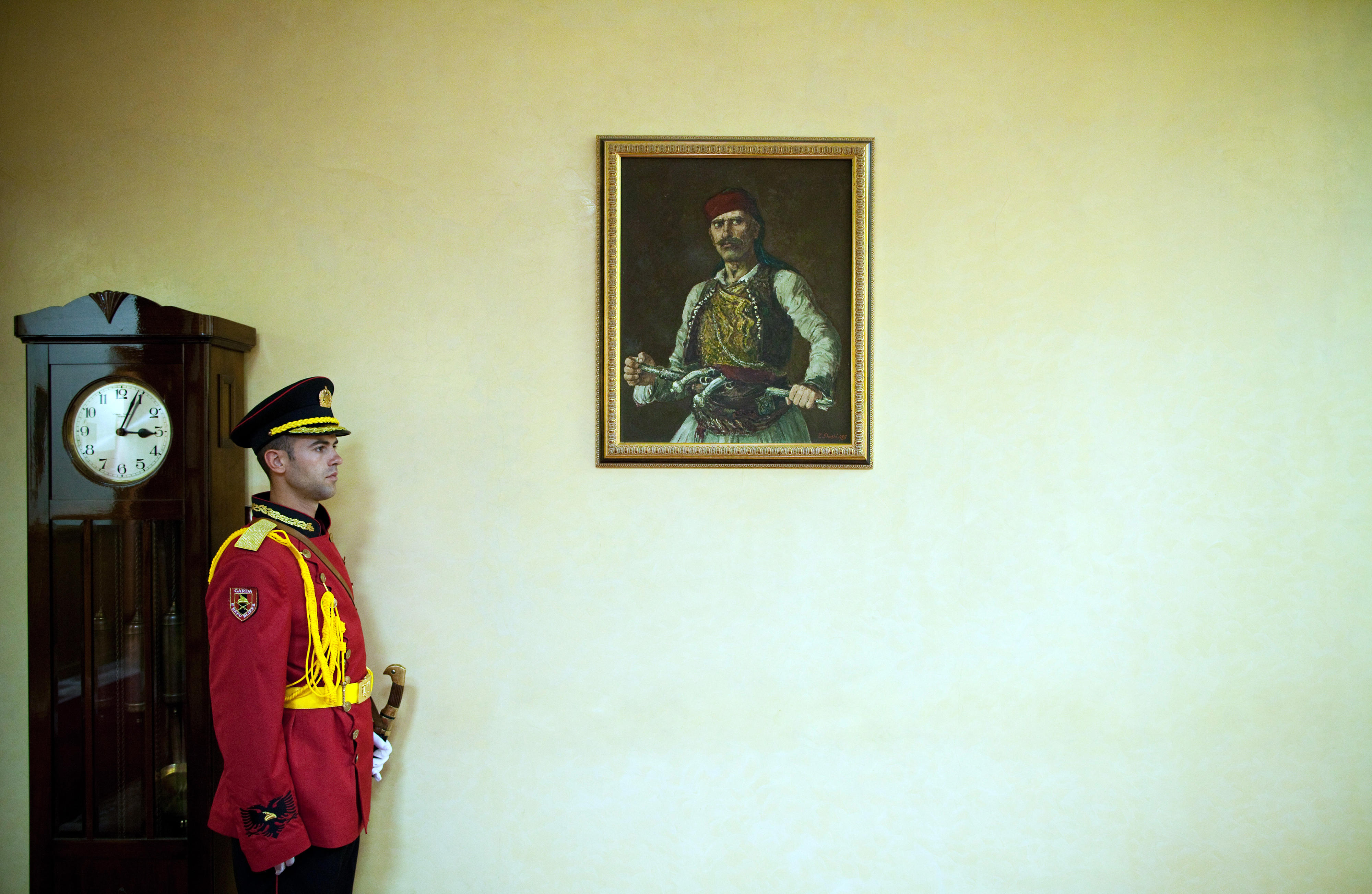Political situation Need for systematic reforms
The Skanderbegplatz with a sculpture of the national hero Skanderbeg and the Palace of Culture in the Albanian capital Tirana
However, many reform endeavours have not yet been implemented systematically enough. There is great polarisation between the government and the opposition. The political parties have a strong tendency to work mainly for the benefit of their respective voter groups. Some important political decisions, for instance on the reform of the judiciary, have only been taken as a result of international pressure.
A lack of legal certainty and weak public administration are constraining the country's development. On the Corruption Perceptions Index published by Transparency International in 2022, Albania is ranked 101st out of the 180 countries rated.
European Union
In April 2009, a Stabilisation and Association Agreement with the EU came into force. Simultaneously, the Albanian government submitted its application to join the European Union. Once the EU's annual report testified that Albania had made sufficient progress on fundamental reforms, Albania was granted EU candidate status in June 2014. In March 2020, EU ministers in charge of European affairs gave the go ahead for taking up accession negotiations with Albania In July 2022 the first official negotiations meeting took place after the conditions that had been set had been fulfilled.
Regional and international engagement
Albania entertains friendly relations with its neighbours and supports the efforts of the international community to establish common security and economic structures in the region. The country’s foreign policy is aligned with the EU’s position on Russia’s war of aggression in Ukraine.
Albania is a member of the Central European Free Trade Agreement (CEFTA) and the Regional Cooperation Council (RCC). In addition, the country is actively engaged in the Berlin Process (External link) for cooperation between the Western Balkan countries. Since 2009, Albania has been a member of NATO. The country has also provided troops for numerous UN peace missions. Albania has a non-permanent seat on the United Nations Security Council for the first time for the period 2022/2023.
Security guard in the office of the Albanian Prime Minister in Tirana
As at: 16/06/2023

